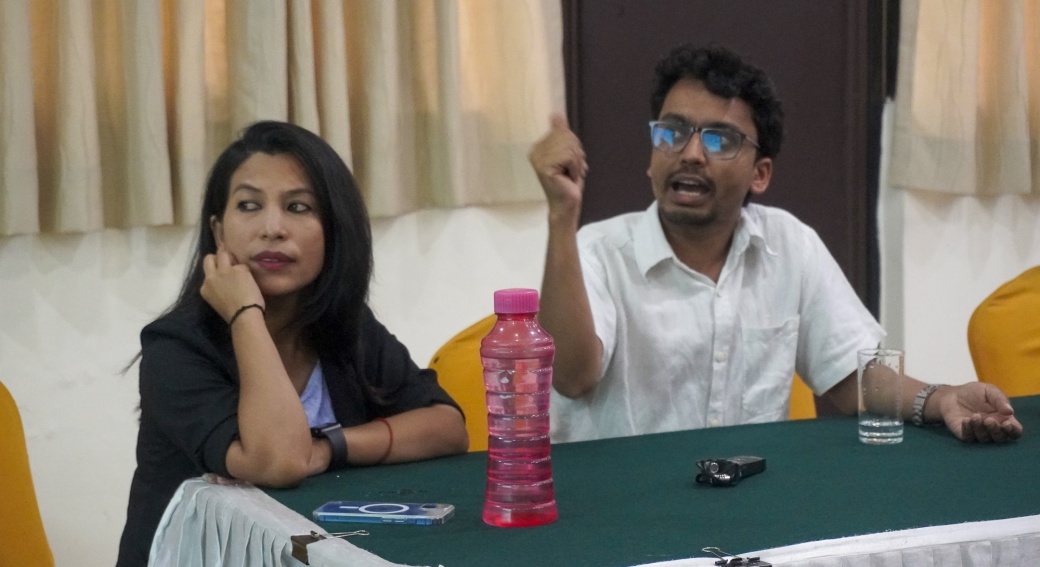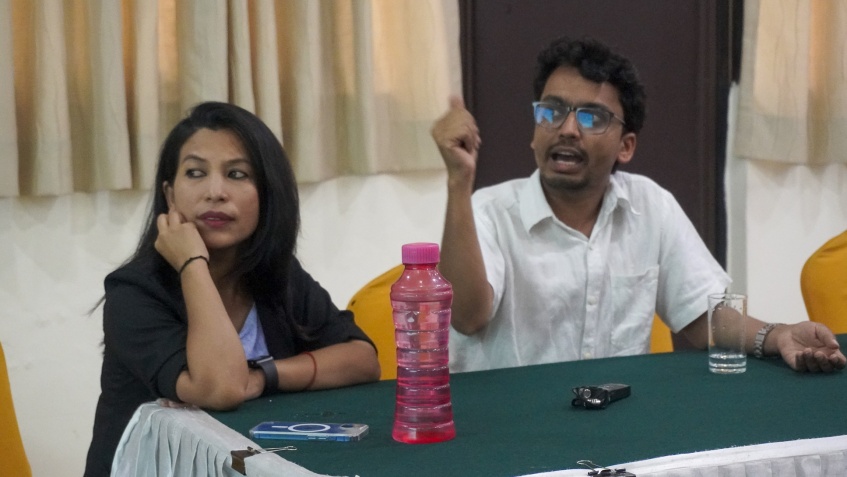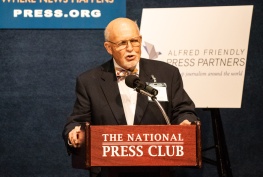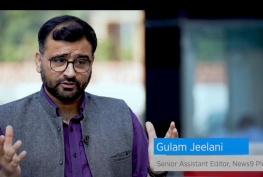
Nitu Ghale and Tanka Dhakal talk with investigative journalists in Kathmandu about their fellowship experiences
On their final day of training, the 2022 Fellows gathered at the Missouri School of Journalism’s conference room in the National Press Building in Washington and discussed their plans for sharing lessons learned with colleagues back home.
At the end of August back in Nepal, Tanka Dhakal became the first of the 12 graduates to fulfill the fellowship’s pay-it-forward requirement with a presentation in his home newsroom.
The following week, Dhakal and 2022 classmate Nitu Ghale of Nepal jointly talked to 25 journalists from around the country in an event organized by the Nepal Investigative Multimedia Journalism Network.
Dhakal works for Deshsanchar, an online news outlet based in the Kathmandu Valley that has a staff of nearly 30 and a daily readership above 100,000. Ghale works for Annapurna Post, a national daily.
In his newsroom south of Kathmandu, Dhakal discussed highlights of what he learned at the journalism school during the first two weeks of the fellowship, including story structure, using audio and video in news reports, fact checking and using data to strengthen reporting.
Dhakal also recounted a long conversation the Fellows had in their living room in Missouri with James Wright, a deputy editor at the Organized Crime and Corruption Reporting Project who has more than 40 years of experience as a reporter and editor. Dhakal went over Wright’s lessons about making successful story pitches to their editors and what to expect in a typical U.S. newsroom.
“He talked to us about now to navigate legal issues like those he had to face because of his reporting and also talked about how to approach sources and how to protect them, and ourselves as well,” Dhakal said.
Dhakal told his Nepalese colleagues about how it felt to work in the Wisconsin Center for Investigative Journalism’s newsroom in Madison. One of the stories he produced for the nonprofit startup was an in-depth article about the environmental consequences of logging too close to lakes.
“I talked about how different and similar it was to my newsroom here,” Dhakal wrote in the Class of 2022’s WhatsApp group chat. “I shared my experience about navigating a new newsroom and how I did reporting there.”

Dhakal then talked about what he and his fellowship classmates learned in Denver during the annual training conference organized by Investigative Reporters and Editors.
During the presentation before members of the investigative journalism network, Dhakal and Ghale talked about both their training highlights and their cultural exchange with Fellows from other countries. They also fielded questions about how to apply these lessons to their reporting in Nepal.
NIMJN founder and CEO Rajneesh Bhandari said the presentation will help participants with their reporting skills and “help us do collaboration between journalists and networking among them. We are humbled to have AFPF fellows to our talk series.”






